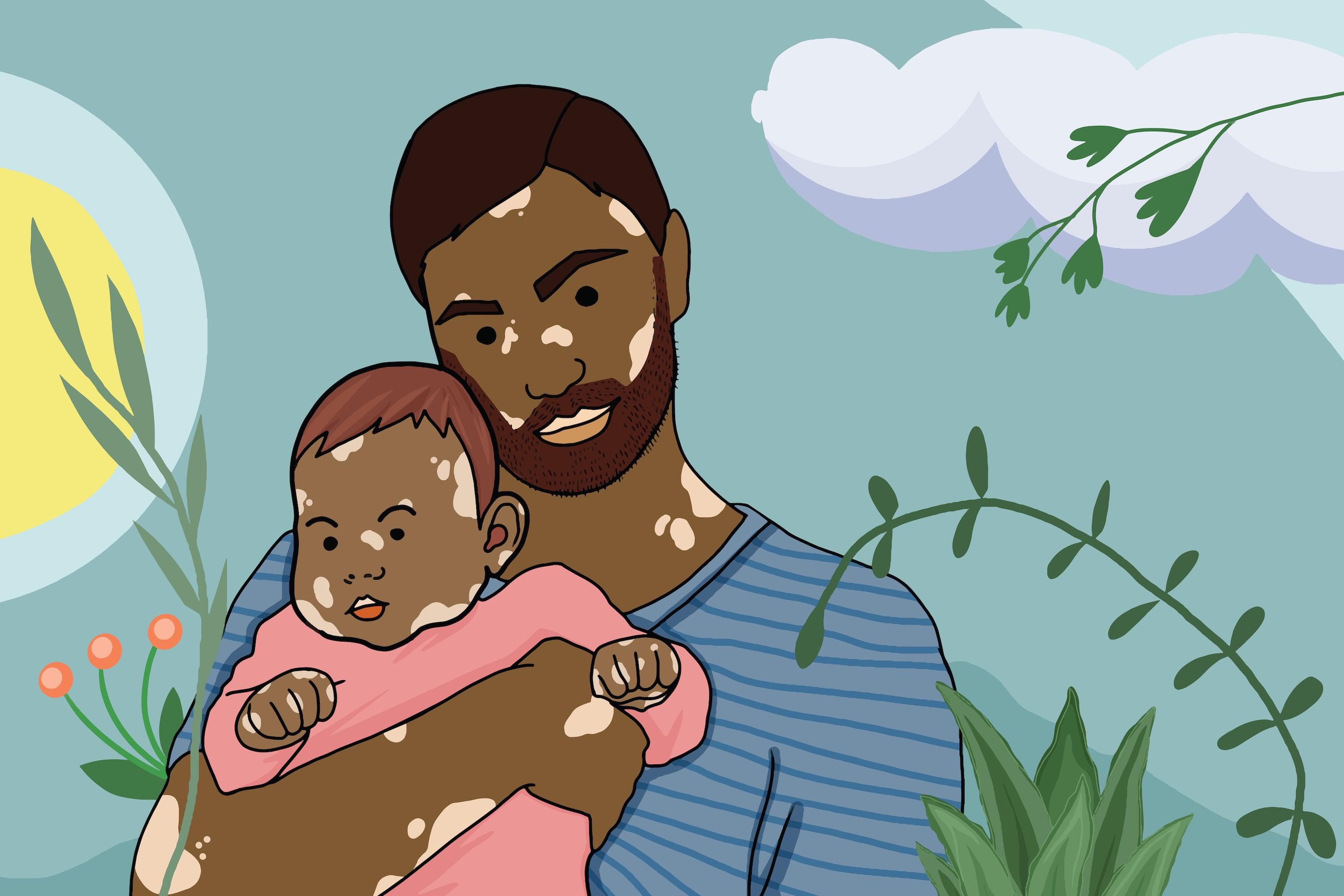The Neuroscience behind the ‘Parenting Paradox’ of Happiness
幸福的“养育悖论”背后的神经科学

Pastel illustration of dad holding his little daughter on floral background.
2025-10-29 1311词 困难
My colleagues and I have conducted research that can help us answer that question—and, along the way, highlight the complexity of what makes for a good life. I’m an emotion neuroscientist by training, and I want to use brain science to understand the messy and complicated feelings that people experience in modern life. Feelings such as bittersweetness in reminiscences about an ex, simultaneous excitement and fear before a performance or ambivalence about a big life change are not easily quantified in the positive-negative scales scientists use in research—yet they can tell us a lot about how we process emotion when it matters the most. During my postdoctoral training, I worked at the University of Southern California in a laboratory focused on the parenting brain. That team has been following a group of first-time fathers through their partners’ pregnancy and their development as parents. I realized that studying these new dads over time would give me a chance to investigate how parenting relates to a meaningful life and what occurs in the brain as people’s life changes.
免责声明:本文来自网络公开资料,仅供学习交流,其观点和倾向不代表本站立场。